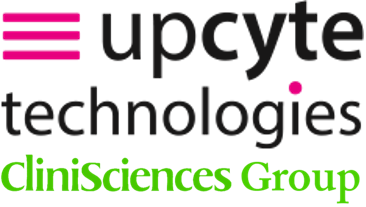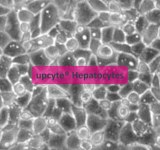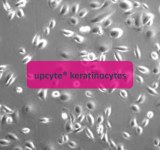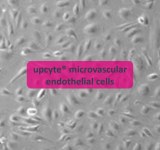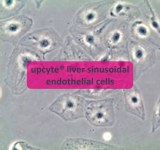Upcyte cells
Cell-based assays are a valuable tool to predict in vivo effects of drug candidates during early steps of development. Cell-based assays are performed using either cell lines or primary cells. Most cell lines are easy to handle and offer the advantage of infinite proliferation, allowing the generation of large cell banks and a facilitated use in screenings or long-term experiments. However, due to their transformed phenotype, many cell lines often exhibit a reduced physiological relevance.
In contrast, primary cells are more representative of the in vivo state when compared to cell lines. However, their use in vitro is hampered by limited tissue availability, scarce cell yields and a restriction
Novel upcyte® technology uses a viral gene transfer system to cause primary cells to proliferate, allowing up to 3,000 vials to be made from one initial vial. The expanded cells show consistent quality, have an extended lifespan and maintain primary cell characteristics and functionality. This technology is used to expand cells from many different donors of the same cell type.
we propose :
- Hepatocyte
- Liver sinusoidal endothelial cells
- Keratinocytes
- Microvascular endothelial cells
